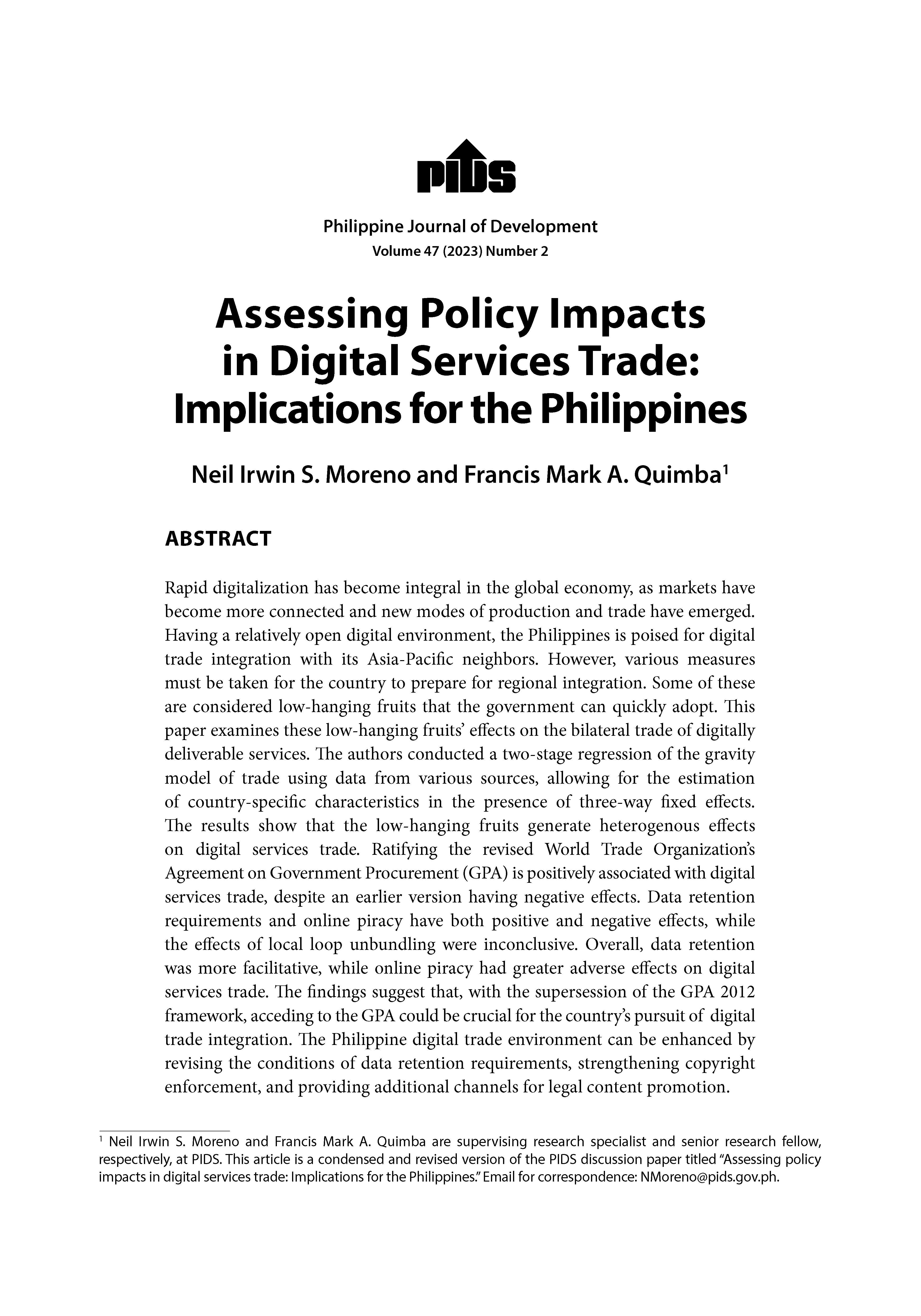Abstract
Rapid digitalization has become integral to the global economy, connecting markets and introducing new modes of production and trade. With a relatively open digital environment, the Philippines is well-positioned for digital trade integration with its Asia-Pacific neighbors. However, various measures must be taken to prepare for regional integration, some of which are considered low-hanging fruits that the government can quickly adopt. This paper examines the effects of these low-hanging fruits on the bilateral trade of digitally deliverable services. The authors conducted a two-stage regression of the gravity model of trade using data from various sources, allowing for the estimation of country-specific characteristics in the presence of three-way fixed effects. The results reveal that the low-hanging fruits generate heterogeneous effects on digital services trade.
Full Issue
SHARE
